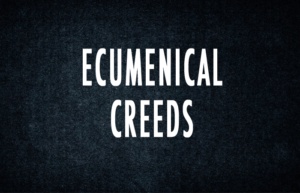Polycarp (Πολύκαρπος), whose name might be translated as fruitful was the leading pastor (ἐπίσκοπος) of Smyrna (today, Izmir, Turkey) on the Agean coast of Asia Minor. We do not know a great deal about his life. He was friends with Ignatius, the pastor of Antioch, who was (presumably) martyred about AD 115. Continue reading →
With The Guilt, Grace, Gratitude Podcast On The Development Of Reformed Covenant Theology In The Reformation
Contrary to what some Dispensational writers have claimed the Christian church, in the post-apostolic period, has always taught covenant theology. The Epistle of Barnabas (c. AD 120) wrote a fairly mature covenantal explanation of the history of redemption, the unity of the . . . Continue reading →













